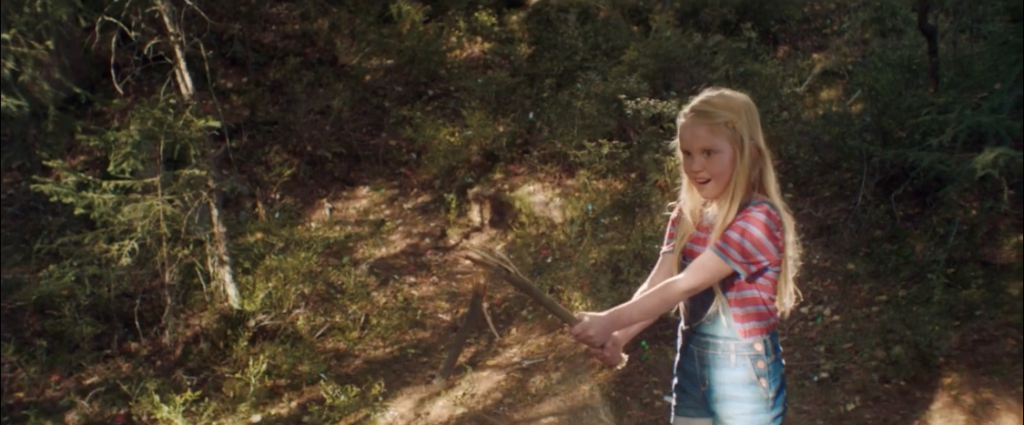
Last night a couple of the other volunteers and I went to see a film at a local cinema here in Przemyśl. It’s an old theatre in a big stone building, with a huge (six inches thick), creaky wooden door that reminds me of a castle gate. The cavernous theatre also has a squeaky floor of bright maple and red plush upholstered seats. The arching domed ceiling is painted in a fruity rose-pink color with dainty white trim.
There is only one screen, and they were showing a film called “The Innocents”, written and directed by Eskil Vogt. It’s a spooky story that, according to this review, seeks to evoke a sense that, “so much of childhood is a mystery, a world that can’t be penetrated by adults.” On the other hand, this review makes the telling argument that, “We’ve all been some combination of these kids as our emotional selves were built piece by piece, one act of kindness, cruelty, or passivity after the next. Curiosity leads to pushing the envelope, and no matter the dramatic nature of the plotted outcome, Vogt’s films succeed in large part because we are these characters and these characters are us.”
I fully concur with these ideas from the reviewer: “Dark though it is, The Innocents is a gorgeous, dreamy film that seems to channel the cinematograhper’s own inner child in recreating the “carefree” days of a childhood summer spent playing outdoors beyond view of adult supervision, with no sense of time’s passage. The camera speaks even more for the characters than the dialogue, and all four of the young actors display exceptional talents. Each earns our heart at one point or another, whether they are seemingly channelling good or evil, and we’re reminded throughout that these aren’t characters beyond their years — they’re children, and they’re in way over their heads.”
Another reviewer called the movie, “An ingeniously crafted parable that . . . explores the implications of power and the consequences of violence.” I struggled with characterizing the story as a parable, until it dawned on me that perhaps this reviewer is suggesting we should take note of the similarities between these children and the human condition in general. As human beings big or small, should we not acknowledge that no matter our rank as children or adults, commoner or king, in the grand scheme of the universe, the way we act as humans in worldly affairs is closer to the habits of hyenas, jackals rabbits and pigeons than it is to godliness? Even the leaders of great nations, like infants, are too often easily overwrought and helpless to guide themselve (not to mention the nations over which they preside). Witness, the invidious hubris and fascination with power that has plauged world leaders through the ages and into the present.
However, clever parables notwithstanding, the biggest take-home from this film for me is even greater and more poignant joy to be here in the Ocalenie Foundation safe space for children at the Ukrainian Refugee Reception Point / Humanitarian Aid Center in Przemyśl, Poland, where I interact with happy, well-adjusted children who do not seem to be haunted or possessed by evil spirits at all. Here, I enjoy a lot of spontaneous smiles and laughter (with, of course, the occasional teary face when some little mishap occurs).
